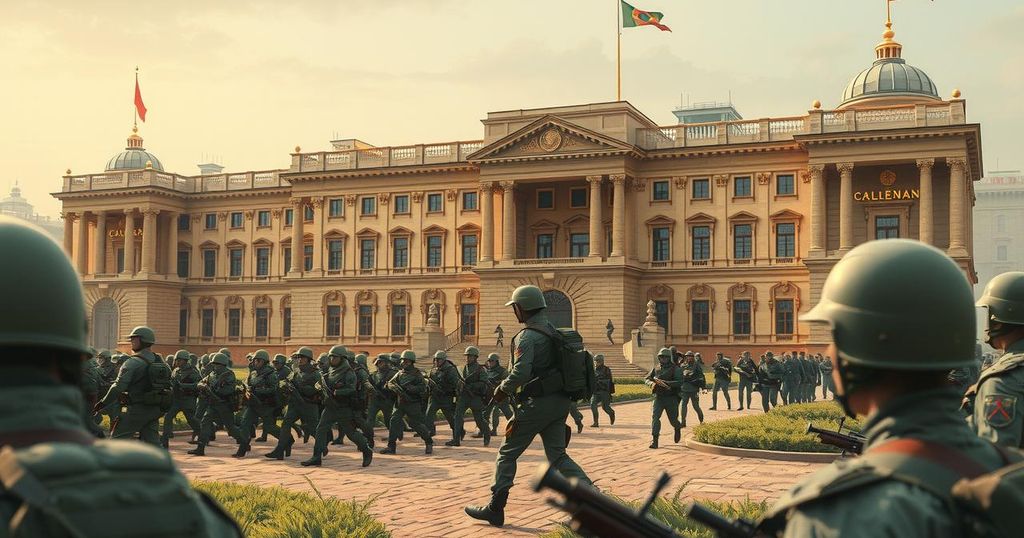Sudan Army Approaches Strategic Presidential Palace Amid Ongoing Conflict

Sudan’s army is advancing to reclaim the Presidential Palace in Khartoum from the RSF amid a protracted conflict since April 2023. The RSF retains control of parts of Khartoum and other regions, leading to fears of increased territorial division. The conflict has resulted in a significant humanitarian crisis, with both sides accused of war crimes. Recent military confrontations, including airstrikes, have heightened tensions as both factions continue to battle for dominance without clear peace negotiations.
Sudan’s army is reportedly inching closer to reclaiming the Presidential Palace in Khartoum from the paramilitary Rapid Support Forces (RSF), marking a notable development in the ongoing two-year conflict. Initially, the RSF seized control of the palace and significant portions of Khartoum following the outbreak of hostilities in April 2023. However, over recent months, the Sudanese Armed Forces have been making steady progress towards the palace along the River Nile.
Despite the army’s advancement, the RSF maintains its hold over various districts in Khartoum and Omdurman, as well as western Sudan where fierce battles continue over control of Darfur’s final stronghold, al-Fashir. The potential capture of the capital by the army could expedite its dominance over central Sudan, thereby entrenching the division of territory between these two factions. Both sides are determined to continue their military engagements without any progress toward peace negotiations.
The ongoing conflict has spurred what the United Nations has described as the largest humanitarian crisis globally, resulting in widespread famine and disease. Both the army and RSF face allegations of committing war crimes, with the RSF additionally accused of genocide; both parties firmly refute these accusations. The recent struggle for the Presidential Palace has escalated, with RSF forces employing snipers and defensive strategies to fortify their position, led by their commander, Mohamed Hamdan Dagalo, who has instructed resilience against the army’s advances.
Recent military actions, including airstrikes and drone operations by the army targeting central Khartoum, have been reported, although the RSF claims to have bolstered its own drone capabilities. Reports of RSF forces making progress towards the Army General Command further complicate the situation. Public sentiment appears to favor the army’s resurgence since late 2022, highlighting dissatisfaction with RSF actions, which include allegations of looting and misconduct. Despite some civilians returning home, reports of soldiers engaging in robbery persist, a claim the military has consistently denied.
In conclusion, the ongoing conflict in Sudan presents a complex landscape characterized by an intertwined struggle for power between the Sudanese Armed Forces and the Rapid Support Forces. With critical developments such as the army’s advancement toward the Presidential Palace, the humanitarian crisis continues to escalate. Both sides appear entrenched in their positions, lacking any substantial movement towards peace negotiations, thereby exacerbating the plight of the civilian population caught in this conflict.
Original Source: www.cnn.com








